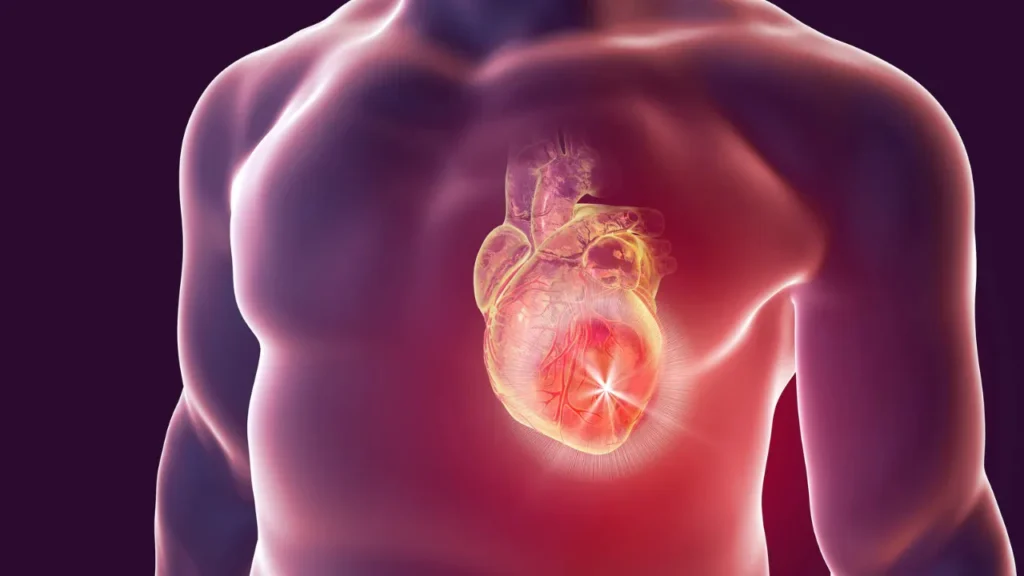Tribulus terrestris, sometimes known as Tribulus, has garnered attention from the scientific community and natural health supplement enthusiasts due to its claim to improve cognitive processes, alertness, and focus. This in-depth conversation explores the characteristics of Tribulus, its health advantages, the ideal dosage, adverse effects, possible drug interactions, and the responsible use of this nootropic supplement. Through our investigation of the scientific aspects surrounding the chemistry of Tribulus and the physiological mechanisms by which it affects the body and brain, we hope to offer more nuanced knowledge to anyone considering using this supplement to enhance their cognitive capacities.
You May Also Like:
Keep Your Brain Young With the 5 Most Powerful Nootropic Supplements
ONNIT Supplements Antarctic Krill Oil Reviewed: A Leading Memory Support Supplement
Tribulus Terrestris: Benefits, Dosage, Side Effects, Drug Interactions, and Other Important Information is an original (NootropicsPlanet) article.
Nature of Tribulus Terrestris
Tribulus terrestris is a flowering plant indigenous to mild temperate and tropical climates that is a member of the Zygophyllaceae family. The plant, sometimes considered a weed, is distinguished by its prickly fruit and capacity to flourish in challenging environments. Tribulus, a plant with a modest look, has been used for millennia in traditional medicine across many countries. It provides numerous health benefits, such as greater energy, better athletic performance, and higher libido.
Health Benefits of Tribulus Terrestris
The use of Tribulus terrestris is associated with several health benefits, not all of which are fully backed by rigorous scientific evidence. However, both traditional use and emerging research suggest potential benefits that include:
Enhanced Libido and Sexual Function: One of the most commonly cited benefits of Tribulus is its ability to enhance libido and sexual function, potentially due to its effects on hormone levels.
Improved Athletic Performance: Some users report enhanced physical performance and muscle growth when using Tribulus, possibly linked to its purported effects on testosterone levels.
Cognitive Enhancements: There is growing interest in Tribulus’s nootropic effects, particularly its potential to improve alertness, focus, and cognitive function. These effects are hypothesized to result from the compound’s influence on neurotransmitter activity and its antioxidant properties.
Cardiovascular Health: Preliminary research suggests Tribulus may benefit heart health, including lowering blood pressure and cholesterol levels, which is thought to be due to its flavonoids and saponins, which may improve blood flow and reduce arterial plaque.
Blood Sugar and Hormonal Regulation: Tribulus has been studied for its effects on blood sugar levels and its potential to regulate hormone balance, making it a subject of interest for managing conditions like diabetes and hormone-related disorders.
It’s essential to approach Tribulus with a scientific lens, recognizing its potential and the need for further research to understand its effects and mechanisms of action fully. While the supplement offers promising benefits, especially in enhancing cognitive functions and overall health, individuals should consult healthcare professionals to tailor its use to their needs and conditions, ensuring safety and efficacy.

Chemistry of Tribulus Terrestris
Tribulus terrestris contains a rich mix of bioactive compounds contributing to its various effects on human health. The primary chemical constituents include:
- Steroidal Saponins: These are Tribulus’s most significant active ingredients, with protodioscin being the most notable. Saponins are glycosides with a distinctive foaming characteristic. They have been shown to mimic or influence the body’s production of certain hormones, including sex hormones like testosterone and estrogen. The presence of these compounds is the basis for the purported effects of Tribulus on hormonal balance and its anabolic effects.
- Flavonoids: Known for their antioxidant properties, flavonoids in Tribulus help scavenge free radicals, reduce oxidative stress, and potentially protect against cellular damage. This action is crucial for maintaining overall cellular health and has cognitive and cardiovascular health implications.
- Alkaloids: These nitrogen-containing compounds are another group of phytochemicals present in Tribulus. While their specific actions in Tribulus are less understood, alkaloids in other plants have been associated with various biological effects, including neuroprotective and stimulatory properties.
- Glycosides: In addition to saponins, Tribulus contains other glycosides that contribute to its therapeutic effects, including cardiovascular and immune system benefits.
These compounds interact with the body’s physiological pathways, leading to the various health benefits associated with Tribulus terrestris. The exact mechanisms by which these chemicals exert their effects are complex and subject to ongoing research.
Physiological Mechanism of Action
The physiological effects of Tribulus terrestris can be attributed to its complex chemical makeup, primarily acting through the following mechanisms:
- Hormonal Modulation: The steroidal saponins in Tribulus, especially protodioscin, are believed to influence the levels of certain hormones in the body. This includes potentially increasing testosterone levels in men and affecting estrogen levels in women. These hormonal changes can lead to improved libido, sexual function, muscle mass, and possibly mood and cognitive functions.
- Neurotransmitter Modulation: Tribulus can influence brain function by affecting neurotransmitter levels, particularly dopamine and acetylcholine. Dopamine is associated with motivation, pleasure, and reward pathways, while acetylcholine plays a critical role in memory and learning. Modulating these neurotransmitters can lead to enhanced cognitive functions, including better focus, memory, and alertness.
- Antioxidant Activity: Tribulus’s flavonoids and other antioxidant compounds help reduce oxidative stress by neutralizing free radicals. This action protects cells from damage, including those in the nervous system, which can contribute to improved cognitive functions and neuroprotection.
- Cardiovascular Effects: The components of Tribulus can have beneficial effects on the cardiovascular system, including improving blood circulation and potentially lowering blood pressure and cholesterol levels. These effects are thought to be due to both the antioxidant properties of its compounds and their impact on hormonal and metabolic pathways.

Optimal Dosage of Tribulus Terrestris
Tribulus dose variations and individual variability in supplement reactions make it difficult to determine the ideal dosage. Most clinical trials have employed daily doses between 250 and 750 mg, with effects being monitored for several weeks to many months. People should speak with healthcare specialists to choose a dosage that is both safe and perhaps beneficial for their particular needs.
Side Effects of Tribulus Terrestris
In healthy people, Tribulus is typically regarded as safe for short-term use. However, some people might experience adverse consequences like upset stomach, sleeplessness, or elevated heart rate. Due to a lack of long-term safety data, the supplement should be used cautiously over an extended period.
Potential Substance Interactions with Tribulus Terrestris
Individuals taking medication or other supplements should be aware of potential interactions with Tribulus. For instance, its effects on blood sugar levels could interfere with diabetes medications, and its potential to modulate hormone levels may interact with hormone therapies. Consulting with a healthcare provider is essential to avoid adverse interactions.

Best Responsible Uses of Tribulus Terrestris
If one is interested in utilizing Tribulus to improve cognitive abilities, a sensible strategy would be to begin with low doses, track effects over time, and make any required adjustments with the help of a healthcare provider. The effectiveness and safety of Tribulus supplements might be affected by market volatility. Therefore, it is imperative to take quality and purity into account as well.
Tribulus Terrestris:
Conclusion
Research suggests that Tribulus may exert its effects through increased testosterone production, enhanced blood flow, and antioxidant activity. These properties have led to its widespread use as a natural remedy for conditions such as erectile dysfunction, infertility, and fatigue. Tribulus has been explored for its potential to support overall vitality, with some studies indicating positive effects on mood, cognition, and immune function. Its adaptogenic properties may help the body better cope with stress and maintain homeostasis in challenging conditions.
While the potential health benefits of Tribulus are promising, further research is needed to validate its efficacy, optimal dosages, and safety profile, particularly regarding long-term use and possible side effects. Additionally, individual responses to Tribulus supplementation may vary, highlighting the importance of personalized healthcare approaches.

References:
- Anti-Parkinson’s Activity of Tribulus terrestris via Modulation of AChE, α-Synuclein, TNF-α, and IL-1β. Retrieved from: https://www.ncbi.nlm.nih.gov/pmc/articles/PMC7542845/
- Supplementation with Tribulus Terrestris Extract Exhibits Protective Effects on MCAO Rats via Modulating Inflammation-Related Metabolic and Signaling Pathways. Retrieved from: https://www.ncbi.nlm.nih.gov/pmc/articles/PMC9851020/
- Does Tribulus Terrestris Really Work? An Evidence-Based Look. Retrieved from: https://www.healthline.com/nutrition/tribulus-terrestris
Important Note: The information contained in this article is for general informational purposes only, and should not be construed as health or medical advice, nor is it intended to diagnose, prevent, treat, or cure any disease or health condition. Before embarking on any diet, fitness regimen, or program of nutritional supplementation, it is advisable to consult your healthcare professional in order to determine its safety and probable efficacy in terms of your individual state of health.
Regarding Nutritional Supplements Or Other Non-Prescription Health Products: If any nutritional supplements or other non-prescription health products are mentioned in the foregoing article, any claims or statements made about them have not been evaluated by the U.S. Food and Drug Administration, and such nutritional supplements or other health products are not intended to diagnose, treat, cure, or prevent any disease.


